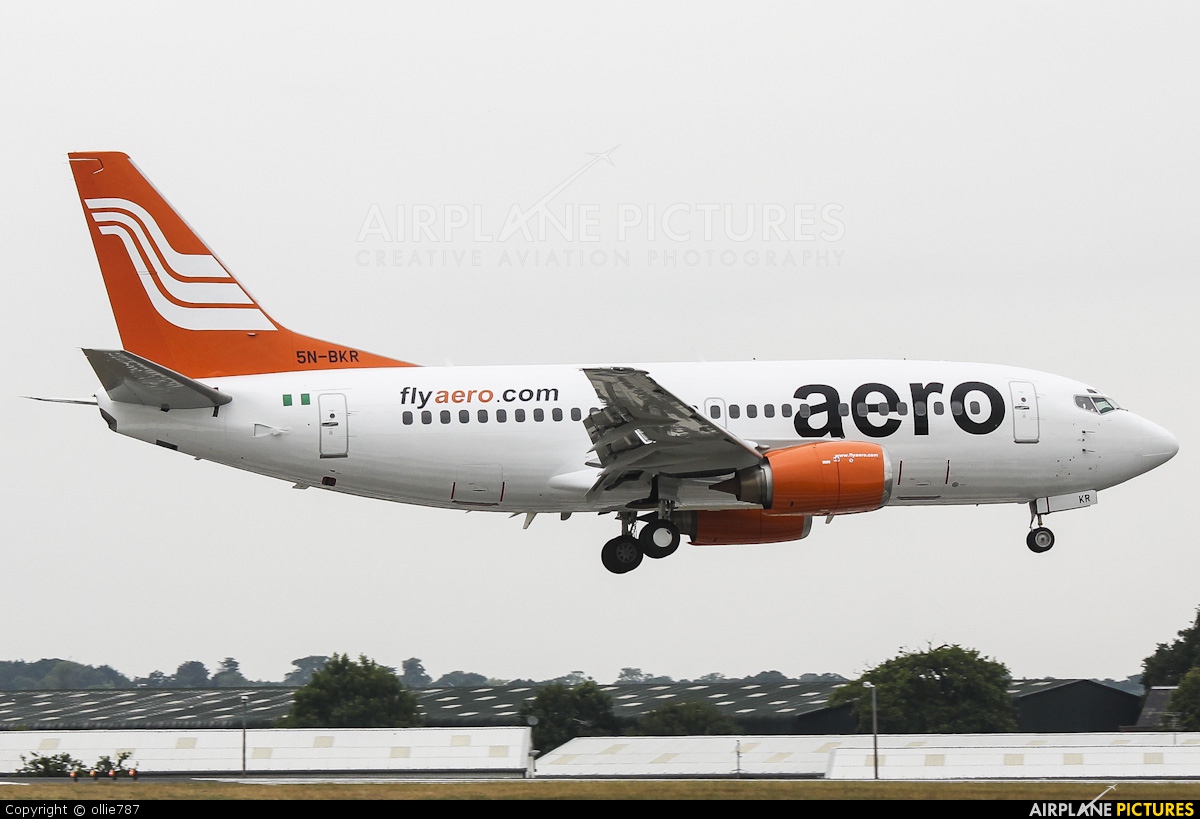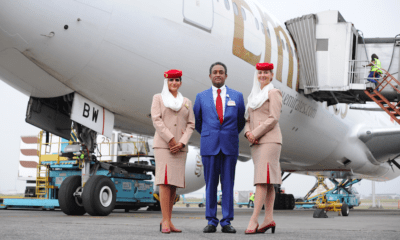- Aero Contractors Expands Operations
Nigeria’s oldest commercial airliner, Aero Contractors, has expanded its operations by re-opening its old routes and introducing new ones with the acquisition of new fleet.
The airline also spots new-look cabin crew as it introduced uniform accessories to re-connect with its customers.
Speaking during the unveiling of the uniform accessories at Murtala Muhammed Airport terminal 2, Lagos (MMA2) at the weekend, Aero Contractors Cabin Crew Executive, Kudirat Bello, said the event was to promote and elevate Aero brand for a better service and seamless service delivery to its passengers.
“We are using this medium to tell the public that we are back and we are back for good. We are in business. We changed the uniform accessories such as the tie and scarf just to enhance the beauty of our uniform. We are telling our passengers to expect us in a big way.
“We have increased in fleet. Our service delivery will be impeccable this time around; we have significantly improved our service,” Bello said.
Also speaking during the event, the CEO of Aero Contractors, Captain Ado Sanusi said the airline is starting new routes and reinstating those routes that it suspended.
“When I joined we were doing eight flights a day, we were servicing only Abuja and Port Harcourt. In the past 24 months, we have increased to more than 30 flights daily. We were carrying close to 8,000 passengers a month then; now we are doing almost 33,000 passengers every month.
“We have included Kano to our routes. We introduced more frequencies into Abuja. We now operate Abuja-Asaba, Warri, Uyo and we are in the process of introducing Yola.
“We will operate Lagos-Yola, Abuja-Yola, Yola-Abuja and Yola-Lagos. This will open more routes for our passengers. Sokoto bound passengers going to Yola can come and join our Yola flight and those from Asaba can join our Yola flight.
“We are opening up Nigeria for our esteemed passengers. We believe that by the end of first half of this year, we should have opened new routes in the Eastern part of the country. We are looking at Owerri and Enugu and it will come very soon. Uyo was there before, so we are reinstating it.”
Speaking on its fleet expansion, Sanusi recalled that the airline started with one aircraft in the beginning of 2017 but has increased to four, adding that it intends to bring more airplanes.
“Our aim is to have a 15-aircraft airline. What we have done today is to tell passengers that we are back and we pride in safety and reliability, which is the best way to fly in Aero,” he said.
Aero Contractors recently launched a training school to end the dearth of skilled manpower in the aviation industry.
The training school was launched by the company after obtaining Approved Training Organisation (ATO) licence from the Nigerian Civil Aviation Authority (NCAA).
Aero had said the school would kick-off with the training of cabin crew and dispatchers and later other courses would be added to the curriculum, noting that it aims to be aviation training facility for the West and Central Africa. It also aims to partner with the Nigerian College of Aviation Technology (NCAT), Zaria and similar international institutions to give Nigeria the best skilled manpower for the industry.
The CEO of Aero Contractors, Captain Ado Sanusi, had said: “We have just got Aviation Training Organisation license. We have been on this for a long time because we wanted to get it right; we wanted to make sure we have a training organisation that is based on a solid foundation, which can be grown into a centre of excellence.
“Now, we are starting with two approvals on our ATO, which are flight dispatcher and cabin crew. We intend to grow that into a bigger school and eventually into a research centre.”


 Forex3 weeks ago
Forex3 weeks ago
 Naira3 weeks ago
Naira3 weeks ago
 Billionaire Watch2 weeks ago
Billionaire Watch2 weeks ago


 Naira3 weeks ago
Naira3 weeks ago




 Naira2 weeks ago
Naira2 weeks ago




 Naira1 week ago
Naira1 week ago




 Naira4 weeks ago
Naira4 weeks ago
 Banking Sector4 weeks ago
Banking Sector4 weeks ago




















